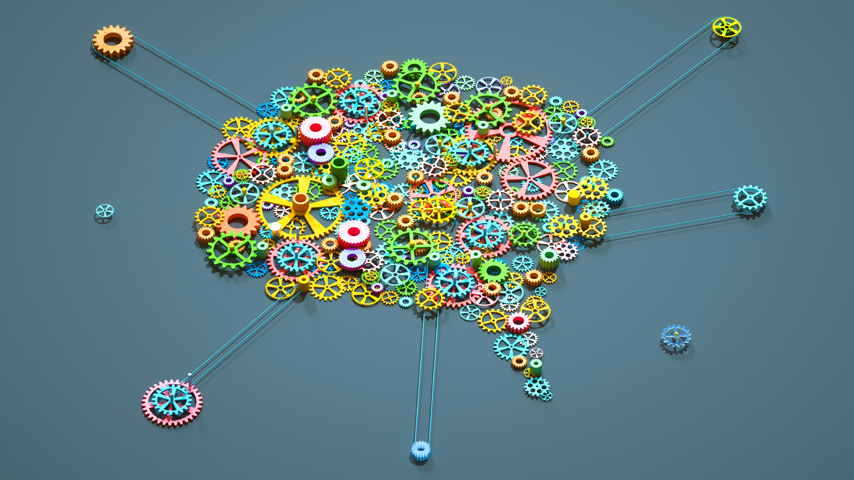Mechanical Engineers Must Up Their Game
Mechanical Engineers Must Up Their Game


To retain a competitive edge in 2030, today’s engineers must embrace technologies that may not yet exist.
Artificial intelligence and other technological advances are redefining industries rapidly. That means mechanical engineers can’t let up on narrowing the gap between what they know today and what they’ll need to know by the end of this decade.
That gap “is pretty wide, and it’s never been this wide before,” said Karthik Ramani, the Donald W. Feddersen distinguished professor of mechanical engineering at Purdue University. “We need more rugged engineers, people who are willing to learn and experiment and figure things out.”
Currently at the Massachusetts Institute of Technology, a Mechanical Engineering Curriculum Review Committee is pondering this very issue.
Discover the Benefits of ASME Membership
Peko Hosoi, a professor of mechanical engineering at MIT, is co-chair of that committee. She said that while higher education—and companies—wrestle with how best to meet future demands that are still unimaginable, it’s important to appreciate what is not going to change over the next decade.
“There are physical laws that govern the way physical things interact,” she said. “We cannot get rid of mechanics or dynamics or controls. The challenge is going to be about how to integrate those concepts with the additional pieces we’re going to add by 2030.”
Mechanical engineers who embrace change will be best able to navigate future workforce challenges, according to Ramani.

“Those with more interdisciplinary exposure are going to be sought after even more,” he said. “They are the ones who will be more entrepreneurial and create new industries.”
Working in interdisciplinary teams requires a different kind of reasoning, said Warren Seering, another professor of mechanical engineering at MIT.
“Instead of having a boss tell them what they do next, they are more engaged in the process of figuring out what needs to be done next,” he explained. “To do that, they need a deeper and more useful understanding of some of the fundamentals so they can reason their way to identifying the key challenges to be faced as well as to figuring out how to address them.”
Not collaborating with colleagues, whether near or far, is known to inhibit efficiency and hamper morale. Both are needed to help reduce systemic risk down the road, said Daniel R. Robles, founder of Community Engineering Services in Seattle.
Stepping outside your comfort zone “may be counterintuitive and may not be appealing, but don’t pigeonhole yourself,” he said. “Put yourself in situations where you’re finding the strategic risk and fixing it.”
Ramani notes that even predictions from two to three years ago about AI’s impact are no longer valid because of how quickly the technology is evolving.
Sharpen Your Skills: ASME Learning & Development
That quick pace won’t be slowing down anytime soon. “Academic courses in fast-moving areas will not be able to keep pace. So research-based learning, learning on the go, short courses, and trainings…are imperative as breakthroughs continue,” Ramani said.
In the meantime, because ChatGPT “sometimes gives you a wonderful answer and sometimes gives you garbage that looks like a wonderful answer,” successful MEs need to develop an intuitive sense for what’s useful and what should be tossed aside, Hosoi said. That sort of critical thinking has always been important, “but now there’s more urgency given the tools that are coming online.”
Ramani said that despite the challenges and even “threat” that AI can present, it offers great potential for revolutionizing product design, spurring skills-based training at scale for an emerging workforce, creating entirely new industries, and generating other positive effects.
To thrive along the way, Seering suggested becoming more adept at broader algorithmic thinking.
To that end, Robles said MEs should recognize that blockchain technology gives engineers “superpowers” when used as a bridge to “integrate engineering and finance, given that 80 percent of economic growth is attributed to technological change.”
He has a bold challenge to engineers. “The call to engineers from now until 2030 is to re-organize the professions, unify the disciplines, adopt a single ontology, reconcile globally with international colleagues, and step out of the artificial silos that contain them.”
Engineers long have made decisions that greatly influence issues of sustainability and the environment, and they will be in even higher demand as raw materials are depleted and energy systems become more complex.
“No group will be more responsible for the sustainability of our lifestyle on this planet than mechanical engineers, so they need to have a better sense of the consequences of their actions,” Seering said. “Engineers have always been responsible, but it's a different kind of responsibility when you're choosing the direction in times like these.”
Robin Flanigan is an independent writer in Rochester, N.Y.
That gap “is pretty wide, and it’s never been this wide before,” said Karthik Ramani, the Donald W. Feddersen distinguished professor of mechanical engineering at Purdue University. “We need more rugged engineers, people who are willing to learn and experiment and figure things out.”
Currently at the Massachusetts Institute of Technology, a Mechanical Engineering Curriculum Review Committee is pondering this very issue.
Discover the Benefits of ASME Membership
Peko Hosoi, a professor of mechanical engineering at MIT, is co-chair of that committee. She said that while higher education—and companies—wrestle with how best to meet future demands that are still unimaginable, it’s important to appreciate what is not going to change over the next decade.
“There are physical laws that govern the way physical things interact,” she said. “We cannot get rid of mechanics or dynamics or controls. The challenge is going to be about how to integrate those concepts with the additional pieces we’re going to add by 2030.”
Building effective teams
Mechanical engineers who embrace change will be best able to navigate future workforce challenges, according to Ramani.

Understand Quality Assurance
Identify and become knowledgeable of rules and regulations, standards and guidance applicable to nuclear facilities.
“Those with more interdisciplinary exposure are going to be sought after even more,” he said. “They are the ones who will be more entrepreneurial and create new industries.”
Working in interdisciplinary teams requires a different kind of reasoning, said Warren Seering, another professor of mechanical engineering at MIT.
“Instead of having a boss tell them what they do next, they are more engaged in the process of figuring out what needs to be done next,” he explained. “To do that, they need a deeper and more useful understanding of some of the fundamentals so they can reason their way to identifying the key challenges to be faced as well as to figuring out how to address them.”
Not collaborating with colleagues, whether near or far, is known to inhibit efficiency and hamper morale. Both are needed to help reduce systemic risk down the road, said Daniel R. Robles, founder of Community Engineering Services in Seattle.
Stepping outside your comfort zone “may be counterintuitive and may not be appealing, but don’t pigeonhole yourself,” he said. “Put yourself in situations where you’re finding the strategic risk and fixing it.”
AI and blockchain
Ramani notes that even predictions from two to three years ago about AI’s impact are no longer valid because of how quickly the technology is evolving.
Sharpen Your Skills: ASME Learning & Development
That quick pace won’t be slowing down anytime soon. “Academic courses in fast-moving areas will not be able to keep pace. So research-based learning, learning on the go, short courses, and trainings…are imperative as breakthroughs continue,” Ramani said.
In the meantime, because ChatGPT “sometimes gives you a wonderful answer and sometimes gives you garbage that looks like a wonderful answer,” successful MEs need to develop an intuitive sense for what’s useful and what should be tossed aside, Hosoi said. That sort of critical thinking has always been important, “but now there’s more urgency given the tools that are coming online.”
Ramani said that despite the challenges and even “threat” that AI can present, it offers great potential for revolutionizing product design, spurring skills-based training at scale for an emerging workforce, creating entirely new industries, and generating other positive effects.
To thrive along the way, Seering suggested becoming more adept at broader algorithmic thinking.
To that end, Robles said MEs should recognize that blockchain technology gives engineers “superpowers” when used as a bridge to “integrate engineering and finance, given that 80 percent of economic growth is attributed to technological change.”
He has a bold challenge to engineers. “The call to engineers from now until 2030 is to re-organize the professions, unify the disciplines, adopt a single ontology, reconcile globally with international colleagues, and step out of the artificial silos that contain them.”
An influential role
Engineers long have made decisions that greatly influence issues of sustainability and the environment, and they will be in even higher demand as raw materials are depleted and energy systems become more complex.
“No group will be more responsible for the sustainability of our lifestyle on this planet than mechanical engineers, so they need to have a better sense of the consequences of their actions,” Seering said. “Engineers have always been responsible, but it's a different kind of responsibility when you're choosing the direction in times like these.”
Robin Flanigan is an independent writer in Rochester, N.Y.







